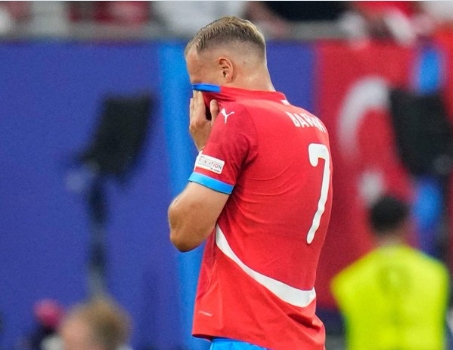The United States and China immediately began vying for influence in Asia and Latin America, just a day after their heads of state renewed their bilateral ties at the Asia-Pacific Economic Cooperation (APEC) summit in suburban San Francisco.
US President Joe Biden focuses on Asia-Pacific
Summit host U.S. President Joe Biden addressed the forum’s business summit, touting the U.S. role as an investor in the Asia-Pacific region and portraying the U.S. as a more desirable trading partner than China. Less than 24 hours after meeting with President Xi Jinping at the Filoli Palace, he promised that “we’re not going to stop our activities in the region.” He emphasized that China was not trying to “cut off” ties with China economically, but to “minimize risk and diversify options” in terms of economic engagement and intellectual property protection.
Biden recalled that so far this year, U.S. companies have invested $50 billion in APEC economies in areas such as aviation or clean energy.
Hours later, Biden met Thursday with Japanese Prime Minister Fumio Kishida and South Korean President Yoon Seok-ryong, but did not address the media at the end of the formal working session. According to the Oval Office, Biden discussed humanitarian aid for Gaza and the war in Ukraine with the Japanese. Biden held a trilateral summit in August to strengthen ties with two key allies in the North Asia-Pacific region against China. On Friday, he will meet with Mexican President Manuel Andres Lopez Obrador and Peruvian President Tina Polwart, who is the executive chairman of APEC.
Chinese President Xi Jinping’s focus on Latin America
As far as Chinese President Xi Jinping is concerned, he has turned his attention to Latin America, especially since countries that have complained about the region’s disappearance from U.S. attention are now focusing on the Asia-Pacific region, Ukraine and the conflict between Israel and Hamas. On Thursday, before attending the summit, Xi’s first act was to meet first with Lopez Obrador and then immediately with Poluat.
During the meeting, Xi pledged his support for Peru’s hosting of the next APEC summit and urged the two countries to strengthen economic and trade ties, including greater involvement of Chinese companies in projects in the Andean nation and Peru, according to a statement from China’s foreign ministry.
Earlier, in his first meeting with Mexican leaders, the Chinese president pledged to take bilateral ties to a new level. The two countries agreed to deepen cooperation in the fight against fentanyl trafficking and to take measures to reduce the flow of precursors from the Asian country to Mexico, where drug cartels produce opioids and ship them to the United States. On Wednesday, Xi and Biden met at the Filoli mansion, 40 kilometers from San Francisco, and one of the main agreements reached was to crack down on the scourge, which kills nearly 100,000 people in the United States each year. According to the Chinese Foreign Ministry, the two leaders also discussed cooperation between the two countries in areas such as infrastructure, finance and electric vehicles.
In addition, Xi met Thursday evening with Japan’s prime minister and leaders of countries other than the United States, with which Beijing has maintained a tense relationship for the past decade. The two leaders did not meet face-to-face last year, when bilateral relations were strained by incidents such as China’s ban on Japanese fish entering the sea after Tokyo began dumping treated water from its plants into the sea in August. The Japanese government has condemned China for patrolling near islands in the East China Sea, known as the Senkaku Islands in Japanese and the Diaoyu Islands in Mandarin, that are disputed between the two countries.
Xi attended the meeting seeking to strengthen trade ties and investment with neighboring Japan, the world’s third-largest economy, amid a weakening economy, while Kishida wanted to lift China’s embargo on fish and release Japanese citizens accused of spying. At the start of the talks, the Japanese prime minister emphasized that “Japan and China coexist as neighbors and share the responsibility to contribute to world peace and stability.”
The Chinese president’s final day in San Francisco will be spent discussing a delicate bilateral relationship: his relationship with the Philippines, which Beijing claims has sovereignty over the South China Sea. According to Manila, in recent weeks, Chinese patrols have harassed the supply operations of the fleet stationed at the Second Thomas Sandbar in the Spratly Islands.
President Ferdinand Marcos announced in San Francisco on Thursday that “we will listen to the Chinese President on how to lower the temperature in the West Philippine Sea and avoid escalation” (Manila’s name for the region). Since coming to power last June, Marcos has been pushing for closer military ties with Washington.










+ There are no comments
Add yours